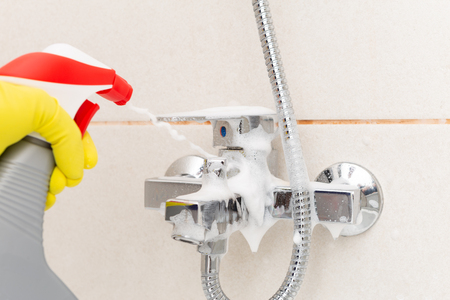Recognising a Plumbing Emergency
When disaster strikes in your UK home, recognising a true plumbing emergency is the first critical step. From burst pipes spraying water across your kitchen to rapidly flooding bathrooms, these situations can escalate within minutes, especially given the UKs unpredictable and often damp climate. Leaking or ruptured pipes are not just inconvenient—they can cause severe structural damage, lead to mould growth, and significantly increase your utility bills. Additionally, during colder months, frozen pipes pose a unique threat to British homes, potentially splitting and unleashing torrents of water when they thaw. Immediate action is crucial: swift identification of issues such as gushing water, persistent leaks, overflowing toilets, or an unexplained loss of water pressure can prevent minor mishaps from spiralling into costly disasters. Understanding the urgency and knowing what constitutes a plumbing emergency empowers homeowners to act decisively—protecting both property value and peace of mind in the face of unforeseen events.
2. First Steps: Containing the Damage
When a plumbing emergency strikes in your UK home, acting quickly can be the difference between a minor inconvenience and extensive, costly damage. The very first step is to isolate the problem by shutting off your water supply. Most British homes have a main stopcock—usually located under the kitchen sink or near where the water pipe enters your property. Turn this clockwise to cut off the flow of water throughout the house. If the issue is isolated (for example, just one tap or appliance), you may also find isolation valves on individual pipes which can be turned with a flathead screwdriver.
Protecting Your Valuables
Once the water is off, immediately move furniture, electronics, and personal items away from affected areas to prevent further damage. Roll up rugs and use towels or old sheets to soak up excess water. If possible, elevate valuable items on sturdy surfaces or relocate them to another room entirely.
Limiting Water Damage
The next priority is to limit how far water spreads. Open windows for ventilation if it’s safe, and use buckets or containers to catch drips from leaking pipes. It’s worth keeping an emergency kit nearby with essentials such as heavy-duty towels, waterproof tape, and a torch in case of power cuts—a common occurrence during severe leaks.
Quick Reference Table: Immediate Actions
| Action | Location/How-To |
|---|---|
| Shut Off Main Water Supply | Locate stopcock (usually under kitchen sink), turn clockwise |
| Use Isolation Valves | Identify valves near affected fixtures, turn with screwdriver |
| Move Valuables | Relocate or elevate items in affected areas |
| Soak Up Water | Towels, mops, old sheets for immediate absorption |
| Catching Drips | Buckets or containers under leaks |
Top Tip:
If you rent your property, contact your landlord as soon as possible after taking these initial steps. Quick communication can speed up repairs and protect your tenancy agreement.

3. When to Call a Professional
It’s tempting to tackle plumbing emergencies yourself, especially with so many DIY guides online. However, understanding when to call in a certified UK emergency plumber can save you time, money, and stress. Minor issues like a dripping tap or a blocked sink can often be handled with basic tools and some know-how. But for more severe situations—such as burst pipes, major leaks, sewage backups, or no water supply—it’s crucial to contact a professional immediately.
DIY vs Professional Intervention
If you notice small leaks under the sink or slow drainage, you might attempt a temporary fix while waiting for further help. Use this approach only if you feel confident and the problem isn’t escalating. For anything involving your home’s main water line, central heating system, or any issue that risks water damage to floors, electrics, or structural elements, don’t hesitate—call an expert.
What Information to Provide
To ensure prompt and effective service from your chosen emergency plumber, be ready to supply key details: your address including postcode, a clear description of the problem (e.g., “water pouring from ceiling near boiler”), when the issue started, and whether you’ve already tried any fixes. If safe, take photos for reference. Knowing the location of your stopcock and sharing this info can also help plumbers respond faster upon arrival.
Why Certification Matters
Always verify that your plumber is registered with relevant UK bodies such as Gas Safe Register or CIPHE. Certified professionals not only guarantee compliance with British standards but also protect your investment by ensuring repairs are done right first time—a vital consideration in today’s property market where quality maintenance can have long-term value implications.
4. Navigating UK Insurance and Regulations
When a plumbing disaster strikes in your UK home, understanding the insurance process and legal requirements is crucial for minimising stress and potential financial loss. The UK has specific protocols and paperwork that homeowners must be aware of to ensure a smooth claims process and compliance with regulations.
Understanding Home Insurance Claims
Most standard UK home insurance policies cover sudden water damage caused by burst pipes or leaks, but it’s vital to check the details of your policy. Insurers often require prompt notification—ideally within 24 hours—after discovering the issue. Keep records of all communications, invoices, and photographs as evidence. Immediate action to limit further damage (such as shutting off water supply) may also be stipulated in your policy terms.
Essential Paperwork for Your Claim
| Document | Description | Why It’s Needed |
|---|---|---|
| Insurance Policy Number | Your unique policy reference | To identify your coverage specifics |
| Photographic Evidence | Pics of damage and affected areas | Proof of incident and extent of damage |
| Receipts/Invoices | Bills from plumbers or emergency services | Substantiates claim amounts |
| Incident Report | A written account detailing what happened | Clarifies circumstances for insurers or authorities |
| Correspondence Records | Emails/calls with insurers or contractors | Keeps track of claim progress and agreements |
Navigating Legal Requirements in the UK
The UK has stringent building regulations concerning plumbing repairs—especially if significant work or replacements are needed. Always use a certified plumber registered with a recognised body such as WaterSafe or CIPHE, as this ensures compliance with local authority standards. Failing to do so can invalidate your insurance claim or lead to fines.
Key Steps After a Plumbing Disaster:
- Notify your insurer immediately.
- Take reasonable steps to prevent further damage.
- Engage only qualified, certified professionals for repairs.
- Keep all documentation organised and readily accessible.
- If structural work is involved, check if Building Control approval is required.
Navigating the maze of UK insurance policies and regulatory obligations can feel overwhelming during an emergency, but prompt action and proper documentation will help you protect your investment and avoid unnecessary setbacks.
5. Preventative Measures for the Future
Top Tips for Routine Maintenance
When it comes to protecting your UK home from plumbing emergencies, prevention is always better than cure. Carrying out regular checks on taps, pipes, and water-using appliances can help you spot minor leaks before they become major headaches. Schedule an annual inspection of your plumbing system—look for signs of corrosion, slow drainage, or unusual noises. Don’t ignore dripping taps; not only do they waste water, but they can also indicate underlying issues that require attention.
Insulation Against Cold Weather
British winters are notorious for causing burst pipes and water damage. Invest in quality pipe insulation, especially in unheated areas like lofts, garages, or underfloor spaces. Insulating exposed pipes helps prevent freezing and subsequent bursts during cold snaps. Remember to bleed your radiators regularly and keep the heating on low if you’re away during winter months. Simple steps like these can safeguard your property and save you considerable repair costs down the line.
Choosing Reputable Tradespeople
One of the best ways to avoid repeat incidents is to use certified, reputable plumbers for any repair or installation work. Look for professionals registered with recognised bodies such as WaterSafe or CIPHE (Chartered Institute of Plumbing and Heating Engineering). Ask neighbours or local community groups for recommendations and always check online reviews. Investing in trustworthy tradespeople ensures any repairs are completed to a high standard—reducing the risk of future emergencies and giving you peace of mind.
6. Essential Kit for Every Homeowner
When a plumbing disaster strikes in your UK home, having the right emergency kit can make all the difference. Here’s a practical checklist of must-have items tailored specifically for British households.
Stopcock Key
This essential tool allows you to quickly shut off your water supply at the mains—a crucial first step during any major leak or burst pipe situation. Not all stopcocks are easily accessible, so keeping a dedicated key handy ensures you won’t waste precious time searching for one.
Adjustable Spanner and Pipe Wrench
These versatile tools will help you tighten loose fittings and tackle minor leaks. For UK homes, where pipe sizes may vary, an adjustable spanner is especially useful.
Waterproof Tape
Specialist waterproof or self-fusing silicone tape can be a lifesaver for temporarily sealing leaks until professional help arrives. It’s ideal for wrapping around burst pipes or joints to stem water flow.
Buckets and Old Towels
Always keep sturdy buckets and plenty of old towels within reach. They’re invaluable for containing leaks, catching drips, and protecting floors from water damage during emergencies.
Plunger
No British home should be without a heavy-duty plunger. Whether it’s a blocked loo or a stubborn sink, this classic tool can resolve many minor blockages quickly and efficiently.
Torch with Spare Batteries
If disaster strikes at night or in low-light conditions—common in many older UK properties—a reliable torch ensures you can find isolation valves and assess damage safely.
Disposable Gloves and Cleaning Supplies
Protect yourself when handling dirty water or sewage issues by wearing disposable gloves. Keeping antibacterial wipes and cleaning spray close by will help prevent contamination after any emergency repair work.
By assembling this essential kit ahead of time, you’ll be well prepared to handle most emergency plumbing repairs confidently, minimising potential damage and costly repairs in your UK home.


